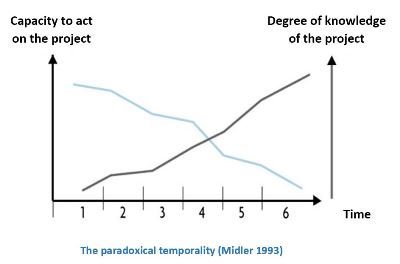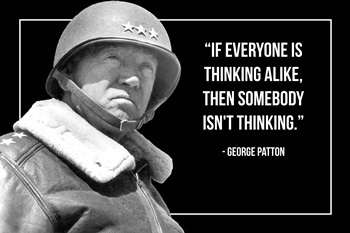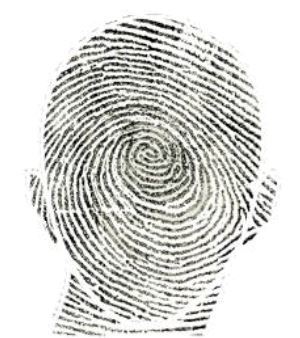Jeremie Averous's Blog, page 71
August 1, 2017
Why History Needs to Start Being Written by Nomads
One of the key transformations of the Fourth Revolution is that nomads will take over the sedentary in terms of economic leadership. This never happened before. And History has always been written by the sedentary.
 “Never did history understand nomads” wrote Gilles Deleuze. It would be about time that History could be written by nomads.
“Never did history understand nomads” wrote Gilles Deleuze. It would be about time that History could be written by nomads.
The point of view of the nomad is different: it is not about how things get built over time, it is how we interact with our environment and how we travel to meet other people, and build something out of these interactions. It is how we interact with what mankind builds, it is not about how we own things and protect them.
I am not quite sure how History will be transformed when it will be written by nomads, for sure this will be a substantial paradigm shift for many of us!
Hat tip to Anne Laure Fréant from the site retourenfrance.fr for French expats returning to France and the inspiration from her email newsletter.

July 29, 2017
How to Overcome the Project Execution Paradox
The Project Execution Paradox is this: the more you advance in a project, the more you know about it, and at the same time the least degrees of freedom you have to influence it.
 It is a close cousin of the sunk cost syndrome, which leads us to continue on absurd projects because of what had been spent already.
It is a close cousin of the sunk cost syndrome, which leads us to continue on absurd projects because of what had been spent already.
There are several techniques to overcome this paradox. They are mostly aimed to minimize commitment and maximize knowledge early in the project. They are routinely used without people realizing their ultimate aim:
create an explicit gate-based decision path that allows to review the project case during the development of the team’s knowledge and understanding of it, and possibly decide to stop it (or to go back to the drawing boards) before too much gets committed,
the ‘lean startup’ path that develops the project with small commitments of resources of energy while maximizing learning and the number of possible iterations,
All planning approaches which aim at dedicated resources to increasing knowledge before large expenditures are being made.
Whatever the approach, the paradox will remain and surprises will occur during project execution. By being aware of the Project Execution Paradox we can try to anticipate better and be prepared for its expression.

July 27, 2017
How to Identify Groupthink
General Patton said “If everyone is thinking alike, then somebody isn’t thinking“. He was probably weary of GroupThink.
 Patton Thinking
Patton ThinkingIn any case I tend to agree: if there is too much agreement on something not trivial, something is wrong. We don’t have the right people in the room or they feel compelled to agree with the majority’s view.
I like to be the one offering a different approach or opinion. I know it takes guts to tell a high powered executive that has obviously flawed plans what people don’t dare tell him straight. It’s risky in some organizations. Maybe that’s why I became an independent consultant.
But remember: if people agree too easily on a controversial subject, something’s wrong in the organization.

July 25, 2017
How ‘What To Do Next’ Has Become The Key Question
Seth Godin in his post ‘What to do next‘ explains how this has become the key question nowadays. Still we should not forget to enjoy the present moment!
 “What next used to be a question answered by your boss or your clients.
“What next used to be a question answered by your boss or your clients.
With so many opportunities and so many constraints, successfully picking what to do next is your moment of highest leverage. It deserves more time and attention than most people give it.”
I tend to agree with this analysis – people do not spend enough time deciding to change themselves and their environment, and would prefer continuity. At the same time we also need to spend enough time enjoying the present moment and not always wondering what’s next. This balance is difficult to establish at the right level.
Maybe being more in the present moment will give clues about what to change next. What about your next?

July 22, 2017
How Mirroring Gestures Is Often the Outcome of Rapport (and not the Contrary)
in NLP (Neuro-Linguistic Programming), mirroring is identified as a powerful tool in connecting with other people. It is even recommended to sometime consciously try to mirror the other person in terms of posture, gesture and energy to establish connection. Is that really the case? Is mirroring not rather the outcome of an established connection?
 Presidential mirroring (connection well established!)
Presidential mirroring (connection well established!)This case is debated and it would seem that actually, mirroring is an outcome and not a cause for connection.
In any case it can be quite uncomfortable to be voluntarily mirrored by someone we are speaking to, so mirroring should be used cautiously and scarcely.
Personally I find mirroring a powerful tool that can only be used after some level of connection has been established, to reinforce further the connection, in particular when it comes to tackling difficult personal issues.

July 20, 2017
How We Should Learn As If We Were to Live Forever
“Live as if you were to die tomorrow. Learn as if you were to live forever.” – Mahatma Gandhi
 What a great recommendation for our daily priorities. The learning part resonates in particular with me (I am still probably less good at living in the present moment?)
What a great recommendation for our daily priorities. The learning part resonates in particular with me (I am still probably less good at living in the present moment?)
We often underestimate all the learning opportunities that we encounter every day. They are not all formal opportunities of course. There is a lot more to learn around us.
What about making sure that we learn something substantial every day by making sure we benefit from all the opportunities that come to us?

July 18, 2017
How Life is How We Respond to It
I like this famous quote by Charles Swindoll “Life is 10 percent what happens to me and 90 percent of how I react to it“. But it’s wrong.
 What’s wrong here is that it’s not how we react to it but how we respond to it.
What’s wrong here is that it’s not how we react to it but how we respond to it.
In fact, life is 10 percent what happens to me and 90 percent of how I RESPOND to it.
This is a small difference but it will create a world of distinct outcomes.

July 15, 2017
How Leading in Complexity Also Requires Self-Centering
Complexity is a matter of keen investigation in this blog. Leading in complexity is an essential area for the Collaborative Age. In his post ‘Scaling Awareness‘, Doug Silsbee gives some interesting hints. This approach stems from a necessary self-awareness.
 “Action in a complexity context is less about directing and engineering a process towards our desired outcomes. It is more about establishing an overall direction, discerning the present state of the system and the dynamics as best we can see them, stabilizing our internal condition, and facilitating a collective exploration of this context along with others who can help with the discernment of what we might invite to come forward.”
“Action in a complexity context is less about directing and engineering a process towards our desired outcomes. It is more about establishing an overall direction, discerning the present state of the system and the dynamics as best we can see them, stabilizing our internal condition, and facilitating a collective exploration of this context along with others who can help with the discernment of what we might invite to come forward.”
Thus the recommendation is to
Normalize complexity. Have real conversations about how complexity is different.
Center yourself. Having done the inner work to be able to de-couple your own inner state from the stresses of your context, act in ways that support the others in your system in doing the same.
Design and conduct safe-to-fail experiments: Conduct small scale, cheap, interesting experiments that are designed to explore how the system works, and that can be amplified if they do something worthwhile, or recovered from quickly if they don’t work.
Organize around direction, not goals.
What I find particular interesting in this approach is the recognition that there is a need to work on self centering as well as taking action on the external aspects.

July 13, 2017
How to Consciously Refresh Your Identity and Announce It to the World
Following on our previous post ‘How Essential it is to Overcome Threats to our Identity‘, we can go one step further and actually decide to create our own identity. And we should actually do that exercise on a regular basis, refreshing our identity according our evolution and what we would like to become.
 My post ‘How I Became a Businessman‘ was such a realization that my identity had changed and I needed to recognize it. One step further is to create the identity of what you want to become. And with social networks we can even announce this new identity to the world.
My post ‘How I Became a Businessman‘ was such a realization that my identity had changed and I needed to recognize it. One step further is to create the identity of what you want to become. And with social networks we can even announce this new identity to the world.
I have recently done the exercise. For example my LinkedIn title has changed subtly from ‘Senior Managing Partner and Founder, Project Value Delivery’ to ‘Executive Management in Project-Driven Businesses – Entrepreneur & Business Angel’. It was important for me to recognize for my professional identity that my occupation today is more into leading a few companies, being a businessman and investing in startups as business angel. And that is what I want to do more systematically in the near future.
I believe that doing periodically this conscious exercise of inventing and announcing to the world the identity of what you want to be is essential.
When do you start the same exercise?

July 11, 2017
How Essential it is to Overcome Threats to our Identity
I find that one of the most common threats we face on a daily basis are threats to our identity. I find that the answer is to develop a sense of identity that is multi-faceted and detached from your current area of occupation.
 Threats to our identity happen in particular when we want to escape from our comfort zone or try new things that might not be perfectly aligned with what we have done before – or what people think our identity is.
Threats to our identity happen in particular when we want to escape from our comfort zone or try new things that might not be perfectly aligned with what we have done before – or what people think our identity is.
Still, overcoming these questions about identity is essential in developing ourselves. because self development means our identity tomorrow will be significantly different from our identity today. And we definitely need to overcome the question “who are you to do this?”.
To avoid suffering in this situation, one of the key response is then to make sure our identity is not related directly to what we are busy doing, or at least that some of it is consciously foreign. It is not easy because most organizations will tend on the contrary to try to align our identity to their existence. For example at work it is essential to detach our identity from our actual occupation or job title.
In general, it is essential to consciously develop our identity as a multi-faceted, multi-fold definition to avoid being taken hostage in a single identity.
How multi-faceted is your identity now?




